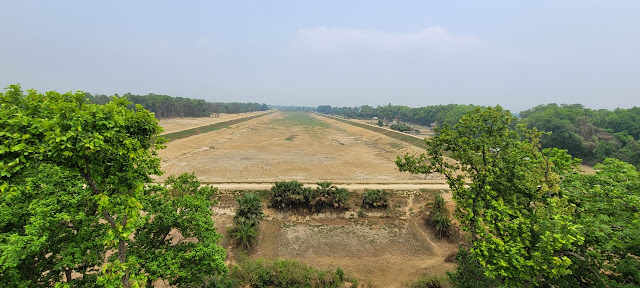A 'new beginning' in India-Bangladesh ties?
A 'new beginning' in India-Bangladesh ties?
At a time when Pakistan shows no signs of relinquishing its role as the 'springboard' of terror, to quote Afghan President Hamid Karzai, Bangladesh has demonstrated its determination to fight it by executing six terrorists, including two who had acquired fearsome reputation for their depredations.
The two were Siddiqul Islam, aka Bangla bhai, head of the Jagrata Muslim Janata (Awakened Muslim Masses), and Abdur Rahman, head of the Jamaat-e-Mujahideen, one of the signatories of Al Qaeda's fatwa establishing an International Islamic Front.
Unlike
It is a measure that will undoubtedly be welcomed by
Now, suddenly, all that has changed, with
If
Noticing the clout the BNP had acquired because of its opportunistic tie-ups with bigots and extremists, the previously secular Awami League, too, entered into an alliance with the fundamentalist Khelafat-e-Majhlis, much to the distress of the Indian government, which tended to regard the Awami League's Sheikh Hasina as someone who was more concerned about secular values than Khaleda Zia.
It was the endless squabbles between the two begums that led to the postponement of the elections, which were scheduled for January, and the instalment of the present regime. While the first task of the new administration was to begin cleansing the Aegean stable of corruption by arresting a number of prominent individuals, including Khaleda Zia's son, Tareq Rahman, its real achievement would be to root out Islamic terrorism.
There is little doubt that the present regime's non-political base has helped it to act against the perpetrators of terror. Since it doesn't have to face elections, it can afford to eliminate those elements who were earlier used by self-serving politicians to whip up religious fervour.
The minorities, both Hindus and Christians, were targeted in the process evidently because the politicians felt that such actions will fetch them political dividends.
However, the fact that the execution of the Islamic terrorists has had no discernible effect on routine life in
If they earlier came out occasionally in support of extremist policies, it was because they were terrorised into doing so by the bigoted mullahs.
After the action against the terrorists,
When
But these hopes were frustrated by the help given by the previous Bangladeshi government to the ULFA and the Kamtapur Liberation Organisation, whose leader Jeevan Singh is believed to be in
Nothing will be more gratifying for
The other Indian expectation will be that
But more than the problems posed by the ULFA or the immigrants, it is the crackdown on the terrorists that will be appreciated by New Delhi as it will deny them a base - which they have been using (apparently with the covert assistance of the ISI) to attack civilian targets in India.
Notwithstanding the help that
Now, at last, the tide seems to have turned. The only unfortunate aspect is that it has taken an authoritarian regime to take these corrective measures. So, along with
(Amulya Ganguli is a political analyst. He can be reached at aganguli@mail.com)
Amulya Ganguli (Staff Writer, © IANS)
Courtesy –


Comments
Post a Comment